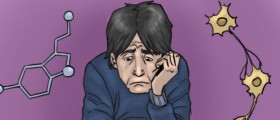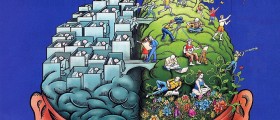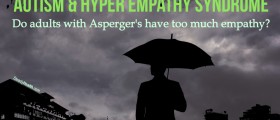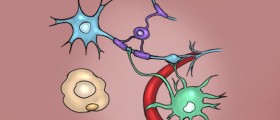
Amygdala is a part of the brain in charge with the numerous functions. It is situated right above the hypothalamus. This structure is almond shape and its approximate length is one inch. Amygdala consists of several nuclei and is a part of so called limbic system. The primary role of amygdala is connected to emotions and memory. Every human being has two amygdalae. This structure is well supplied with neurons which connect this brain structure to other parts of the brain.
The Function of Amygdala
This brain structure was discovered in the 19th century. It was in 1930s when scientists found that damage to the temporal lobe of the brain causes different changes in people's behavior. The most prominent changes were related to fear reactions, feeding and sexual behavior. Further investigations have proved that the damage to amygdala leads to specific changes in emotional processing. The researchers did not stop and thanks to numerous scientists we are today familiar with many functions of this specific part of the brain.
There is a clear connection between amygdala and the orbital and frontal cortex as well as the striatum and thalamus. These structures are responsible for emotional processing. In humans this part of amygdala is in charge with reaction of fear and pleasure. Not only that this structure controls current emotions, it also stores all the previous emotional responses. It has been also proven that there is a difference between emotional responses in two genders. This difference is also connected to specific structure of amygdala. Apart from emotional processing amygdala is also connected to social processing.
Amygdala is essential in creation of emotions. It is also necessary for us to notice other people's emotions and emotive reactions. This structure can help us avoid dangerous situations by causing fear. If we experience fear due to some situations amygdala takes care of specific actions we are going to take to avoid these dangerous situations. If similar situation occurs the body will experience symptoms of fear due to the memory of the previous event that has been stored in amygdala.
People whose amygdala has been damaged because of certain diseases suffer from behavioral and emotional abnormalities. Inappropriate function of amygdala may cause autism, different phobias, anxiety and depression. This part of the brain can also malfunction in case of neurotransmitter imbalance and developmental problems.
In patients who are suffering from bipolar disorders amygdalae are significantly larger than in healthy people. Furthermore, malfunction of this part of the brain is related to violent psychopathic behavior.
The researches of this amazing part of the brain are still conducted and they will most probably end only after every single function of amygdala has been revealed.















-Causes,-Symptoms,-Diagnosis-And-Treatment_f_280x120.jpg)

Your thoughts on this
Loading...